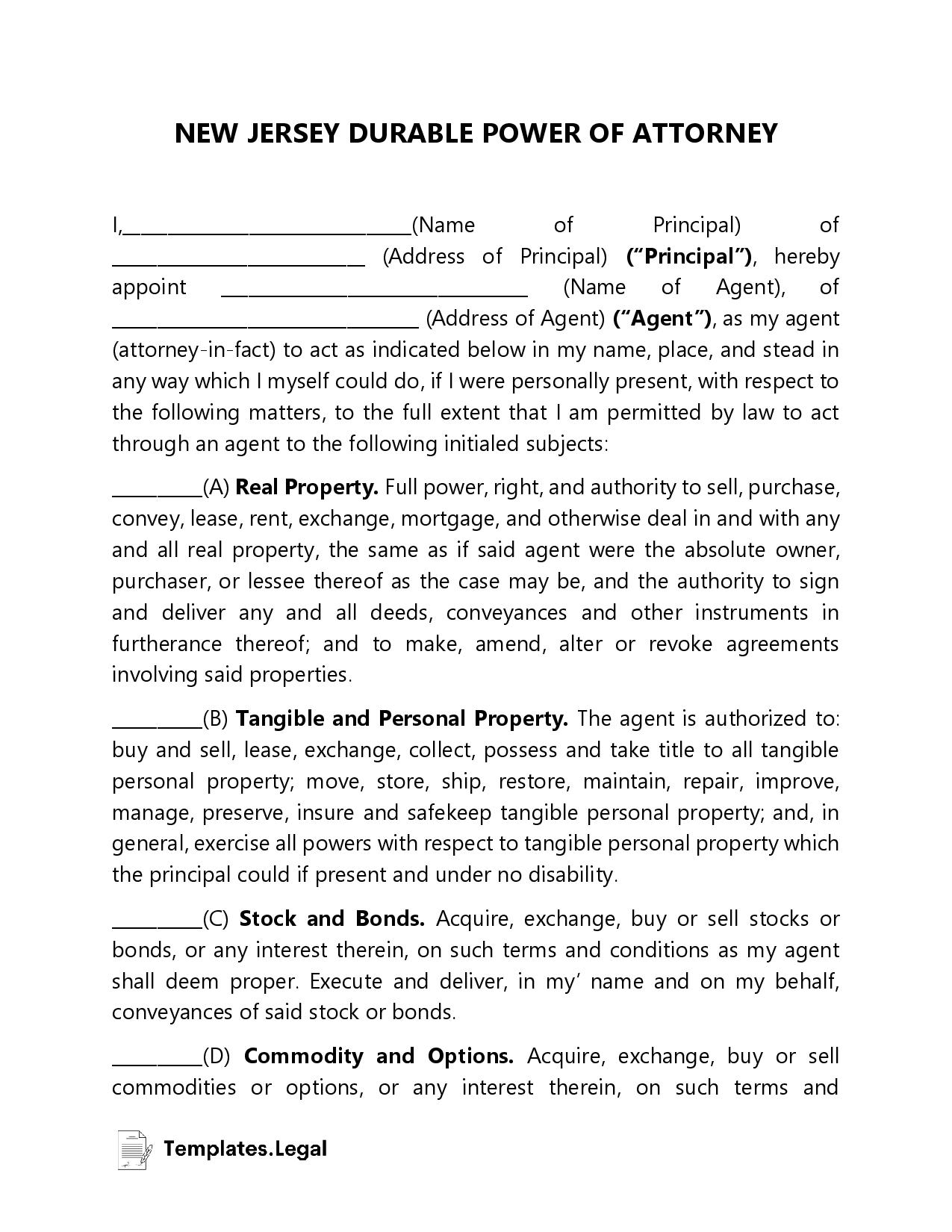 New Jersey Durable Power of Attorney - Templates.Legal" width="1275" height="1650" />
New Jersey Durable Power of Attorney - Templates.Legal" width="1275" height="1650" />A New Jersey Power of Attorney (PoA) permits a grantor to authorize a third-party to act on the grantor’s behalf when resolving financial, legal, and health care issues. New Jersey residents have a few different types of POA options at their disposal, depending on the scope and duration of the powers granted.
Contents hideA Durable PoA gives a grantor the ability to designate a third party as an agent who can make decisions regarding the grantor’s financial and legal affairs. This includes actions pertaining to real property, stocks, banking, and other key issues. It is considered ‘durable’ because it stays legally binding even upon the incapacitation of the grantor.
 New Jersey Durable Power of Attorney - Templates.Legal" width="1275" height="1650" />
New Jersey Durable Power of Attorney - Templates.Legal" width="1275" height="1650" />
In New Jersey, the PoA must contain language that makes it clear the grantor wants it to stay in effect in the event of incapacitation or death. Otherwise, courts will consider it a General PoA.
A General PoA provides similar rights to the Durable PoA but does not specifically dictate that the document will remain in effect when the grantor dies or becomes incapacitated. Legal authorities will deem all PoAs as general unless the paperwork possesses the necessary verbiage to create a durable PoA.
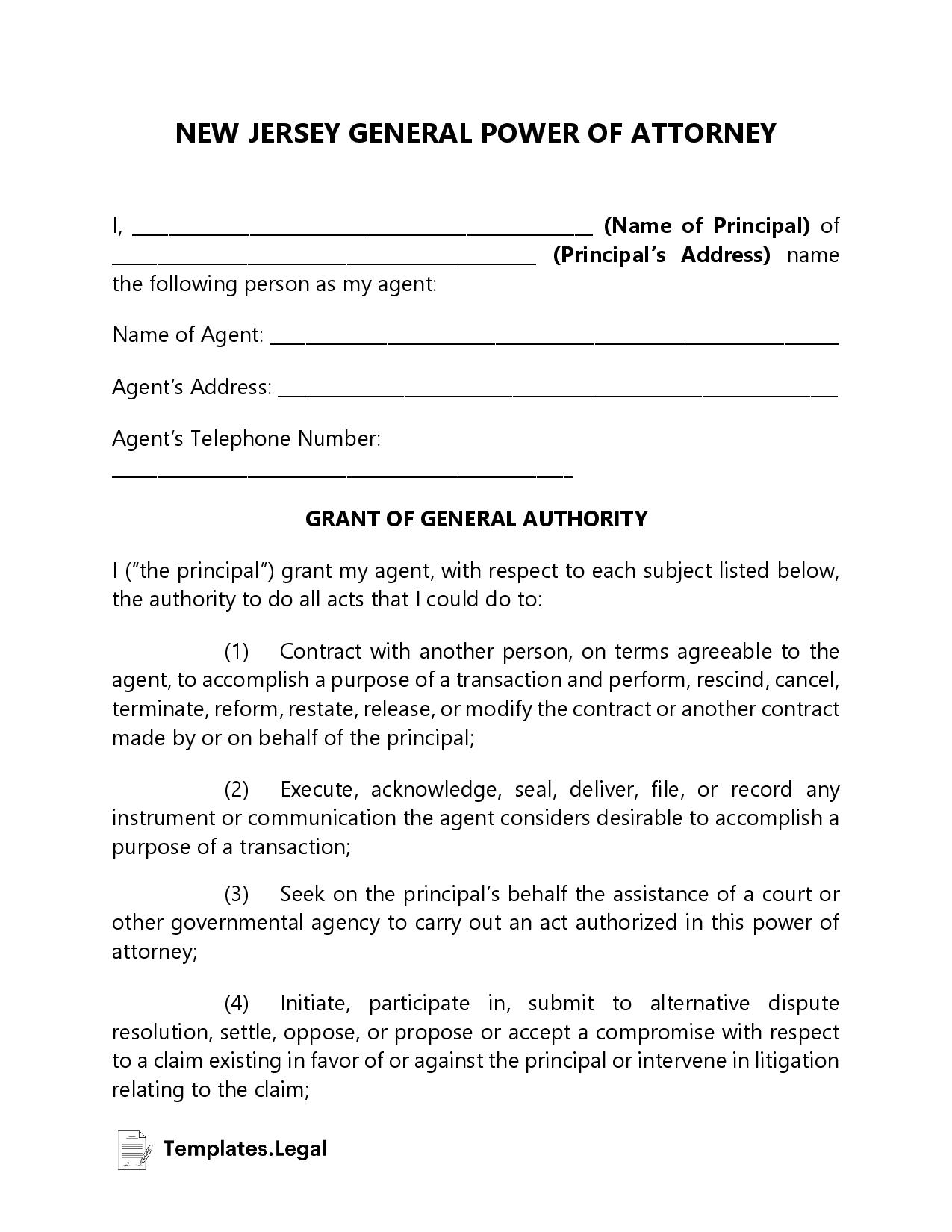
A Limited PoA allows a grantor to restrict the temporary decision-making rights of a third-party agent to specific tasks. Once the agent has completed the tasks stipulated in the Limited PoA, the document becomes void. For example, a grantor may give a family member the limited right to sell a specific piece of the grantor’s property and distribute the proceeds.
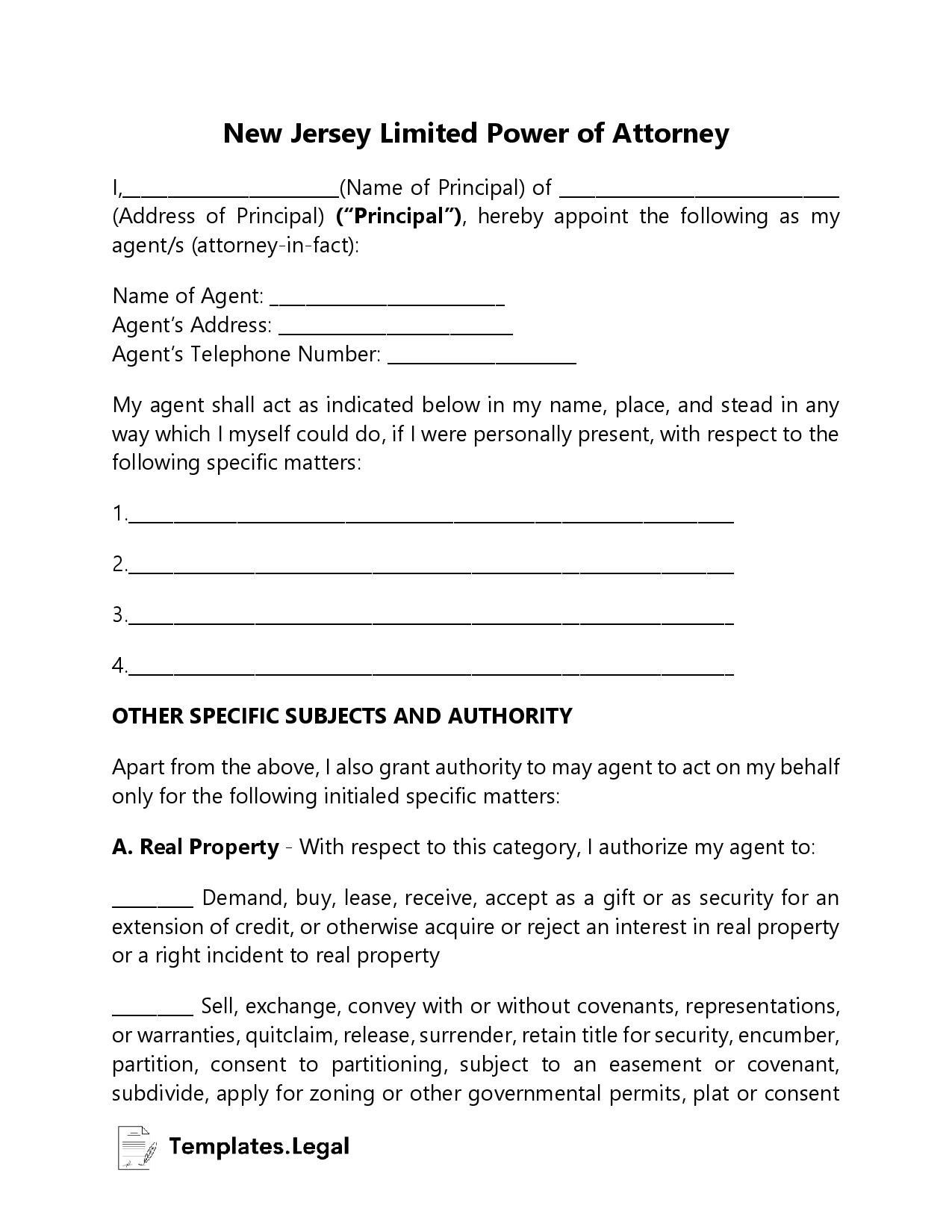
A Medical PoA, or Proxy Directive, gives an agent the power to finalize health care decisions on
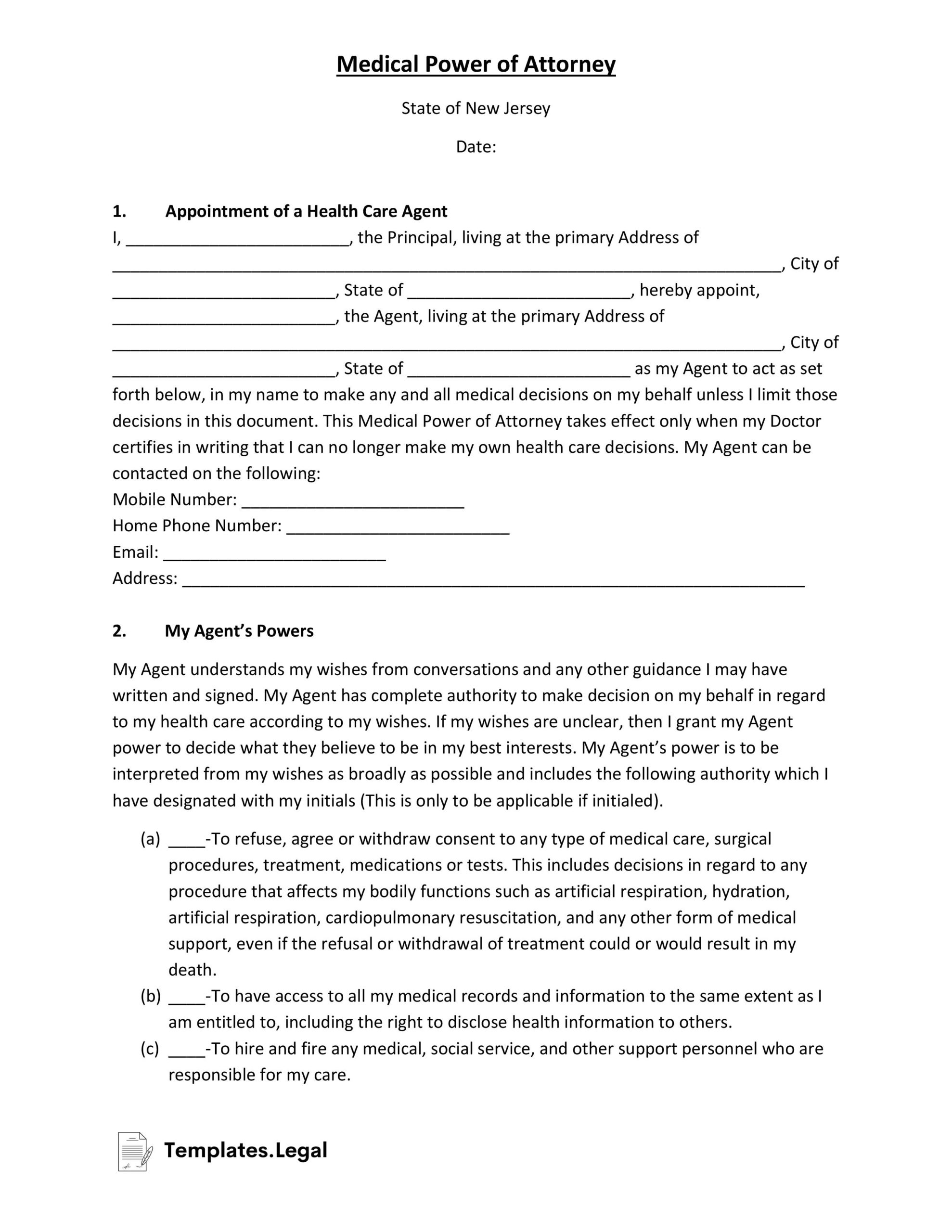
behalf of the grantor should incapacitation occur. Examples of incapacitation include traumatic brain injuries, Alzheimer’s Disease, advanced Lou Gehrig’s Disease, and others. Once an event triggers the PoA, the agent may dictate the treatment, resuscitation, palliative care, and more.
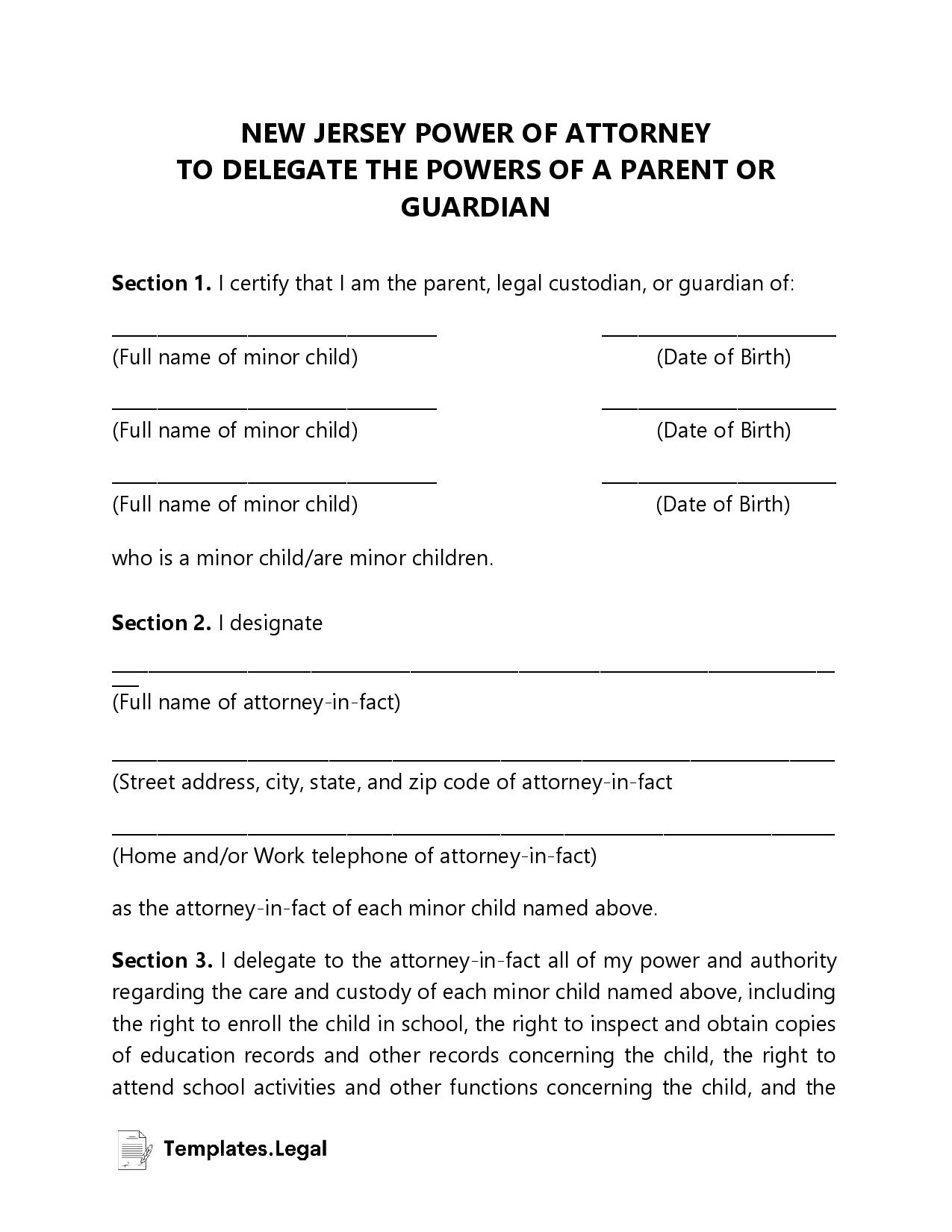
A Minor Child PoA allows parents to name a third party as a temporary guardian who can make emergency medical decisions for their child. Many parents use this PoA if they expect to remain out of the country for an extended period of time. They can also sign a Minor Child PoA in other cases where they apprehend a future inability to decide a course of treatment for their kids.
Below, find some of the most commonly asked questions regarding PoAs.
How Do I Get a Power of Attorney in New Jersey?To get a PoA in New Jersey, complete and sign one of our free New Jersey power of attorney forms. Next, make sure your third-party agent signs the form. Lastly, take the form to a notary public, who will sign and stamp it. The PoA will become effective upon the date of the notary’s signature or the stated effective date, whichever is later.
How Do I Revoke a Power of Attorney in New Jersey?To revoke a PoA in New Jersey, fill out and sign a New Jersey Revocation of Power of Attorney document. Then, have it notarized and serve notice on each party stated in the initial PoA.
How Do I Sign a Power of Attorney in New Jersey?Grantors should sign a New Jersey Power of Attorney form in front of a notary, and then ensure the notary public signs and stamps the form before recording it in a notary’s journal.